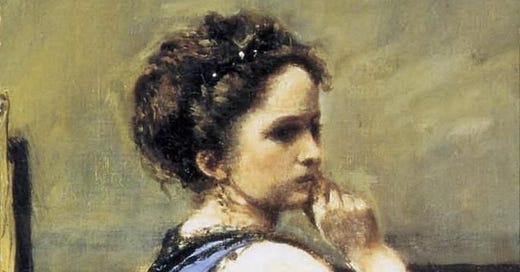When Gustave Flaubert published Madame Bovary in 1856, he probably didn’t expect to end up in a courtroom, defending his novel against charges of obscenity. Nor did he expect that he would fundamentally transform the modern novel.
The French prosecutor Ernest Pinard accused Flaubert of an "offense to public and religious morality and to good morals" for publishing the novel. Though Flaubert was ultimately acquitted, the court still reprimanded him for forgetting that art "must be chaste and pure not only in its form but in its expression."
But what, exactly, was so offensive? French literature had seen the portrayal of adultery in books before. What disturbed authorities was Flaubert's refusal to moralise. His intention wasn’t to teach a lesson but to show life as it is rather than as it should be or as some people thought it should be.
It was exactly this commitment to realism, free of judgment that disturbed the traditional French society that made Madame Bovary a revolutionary book. In a letter to Louise Colet written in 1852, Flaubert wrote: “The author in his work should be like God in the universe, present everywhere and visible nowhere.” With Madame Bovary, he created a novel that didn't preach — it revealed.
At the heart of the novel stands Emma Bovary, one of the most complex, fascinating, and divisive literature characters. Her misery doesn’t stem from an abusive marriage or oppression, but from the chasm between expectation and reality — a fantasy shaped by the romantic novels and fashion magazines of her time. She believed marriage will bring passion; instead, it brought routine, dullness, and Charles.
Emma is not easy to like. She is impulsive, chronically dissatisfied, and emotionally volatile. But that’s precisely what makes her interesting. She isn’t a symbol — she’s a person. A human being whose desires and limitations speak to universal aspects human condition.
She is, in many ways, the first literary victim of what we might now call “social media disorder" – the corrosive belief that everyone else is living a more exciting and meaningful life than we are. If she lived today, Emma would be scrolling obsessively through Instagram at midnight, consumed by curated glimpses of other people’s lives, and always imagining that they are somehow happier and live more exciting lives than she is. She is basically the kind of person that makes Mark Zuckerberg immensely happy.
It’s not only Emma’s story that makes Madame Bovary a masterpiece — it’s how that story is told. Famously obsessive about his craft – Flaubert could spend entire days searching for "le mot juste" (the right word). But his true innovation was the structure of the novel. Rather than concentrated on the dialogues of his characters, Flaubert use a free indirect narrative, a technique that allows the readers not only access to a character’s psychology, but also to see the world as another person sees it. I can think of two more modern novels that use this free indirect narrative . Virginia Woolf’s Mrs. Dalloway and Toni Morrison’s Beloved - — novels that dissolve the barrier between reader and character, showing us not just what people do, but how they feel doing it.
What is particularly important is that the novel begins and ends with Charles. Emma doesn't get a voice until she becomes Madame Bovary. It’s as if her voice isn’t worth hearing until she belongs to a man — a reflection of the gender norms in the provincial France of 19th century. Even in a novel that bears her name, she is defined by her relationships.
Emma’s story ends with debt, despair, and ultimately, suicide. But her death is not simply the result of financial ruin, it’s a final desperate act, a response to a reality that refuses to match expectations.
What makes Madame Bovary so enduringly relevant? Why does this tale of a provincial French woman still speak to readers in our hyperconnected, digital age?
The answer lies in Emma's fundamental problem – chronic dissatisfaction fuelled by unrealistic expectations – which has only intensified in our era of curated social media personas and endless consumer choice. Emma believed that people in Paris were living more exciting lives than she was; today, as we jump from the one short video to the other we are convinced that everyone is having more fun, achieving more success, and finding more fulfilment than we are.
Emma's materialism, too, resonates with contemporary experience. Her belief that the right possessions – the beautiful dress, the elegant furniture – will somehow transform her life mirrors our own consumer culture. We, too, are sold the idea that happiness lies just one purchase, trip, or partner away.
Even her lovers aren’t really about love. Emma doesn't seek connection — she seeks escape. Trapped in an unsatisfying marriage at a boring provincial town, her affairs are attempts to feel more alive. To feel something bigger. It’s a fantasy we still buy into, one scroll at a time.
In the end, Emma’s tragedy is not that she is immoral, but that she is human — painfully, beautifully, tragically human.
Sources:
Dominick LaCapra, “Two Trials,” in Denis Hollier et al., eds. A New History of French Literature (Cambridge: Harvard UP, 1989), p. 726.
Flaubert: The Tragic Historian | Peter Brooks | The New York Review of Books
https://www.newyorker.com/culture/culture-desk/teaching-madame-bovary




